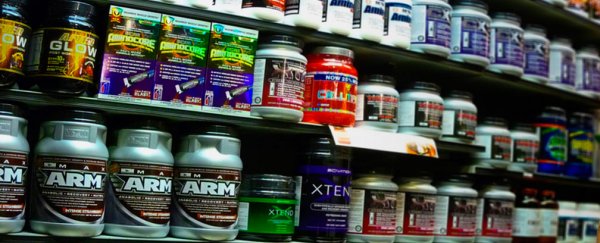The US Food and Drug Administration (FDA) has issued warnings to five distributors of pure powdered caffeine, saying that the products they're selling are highly dangerous and demanding they take action.
Pure caffeine powders might be packaged to look like other inconspicuous energy supplements, but the truth is they're extremely potent. According to the FDA, a single teaspoon of pure powdered caffeine is equivalent to the amount of caffeine in approximately 28 cups of coffee.
What this means is the only safe way to consume the product is to use an exceptionally precise measure to serve a very small dose, but it's unlikely that most household kitchens would have the right kind of equipment to do this.
As the FDA points out, volume measures such as teaspoons are not themselves precise enough to accurately measure the correct amount of milligrams in a serving, making it very easy to accidentally mistake a toxic dose for a safe amount when dealing with pure caffeine.
The risks aren't just theoretical. Some people get the jitters when they've had maybe one or two cups of coffee too many, but the side effects are massively amplified when someone overdoses with the equivalent of 10 or 20 cups too many (or even more). An overdose of pure caffeine can result in rapid or erratic heartbeat, vomiting, seizures, and even death.
In 2014 consumption of powdered caffeine led to two separate fatalities in the US, with 18-year-old Logan James Stiner of Ohio and 24-year-old James Wade Sweatt of Georgia both dying from overdoses.
According to Michael M. Landa, the director of the FDA's Centre for Food Safety and Applied Nutrition, both young men turned to caffeine powder as an easy way of getting an energy boost.
"I cannot say strongly enough how important it is to avoid using powdered pure caffeine," writes Landa on the FDA Voice blog. "The people most drawn to it are our children, teenagers, and young adults, especially students who want to work longer to study, athletes who want to improve their performance, and others who want to lose weight."
In one of the warning letters issued by the FDA, the organisation points out that one brand is selling it in 400-gram packages, which is equivalent to 2,000 recommended servings. But they say the labelling, which ambiguously states, "Serving Size: 200mg… ¼ Teaspoon: 574mg", does not make this clear to the consumer.
Even if consumers didn't make the error of mistakenly equating the serving size with a ¼ teaspoon – which the FDA says could easily happen – it's unclear how most people (who don't have laboratory-grade measuring equipment hanging around on their kitchen shelves) could safely measure out what amounts to about one-twelfth of a teaspoon.
Now that they've been officially warned, the companies have 15 business days to explain what they'll do to bring their products into compliance with the law. Going forward, they'll need to come up with packaging and labels that clearly state the potency of their product, so they no longer present a "significant or unreasonable risk of illness or injury".
